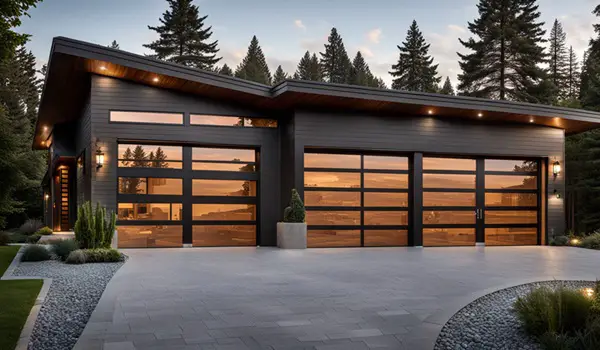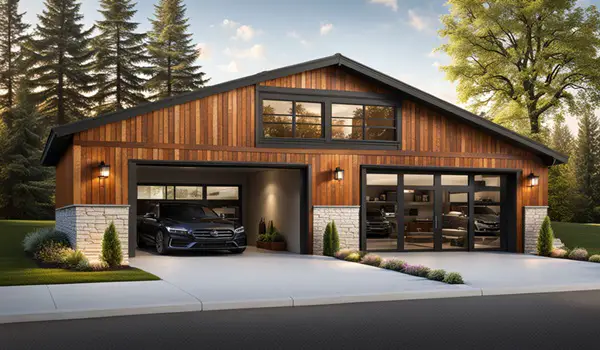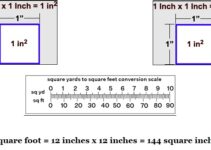2 Car Garage Prices
Are you dreaming of adding a 2-car garage to your home? Whether you need space for your vehicles, a workshop, or additional storage, building a 2-car garage can be a valuable investment. However, navigating the costs involved can be overwhelming. This guide aims to demystify the process by providing a comprehensive overview of 2-car garage prices.
Factors Affecting 2-Car Garage Prices

When embarking on the journey of constructing a 2 car garage, a myriad of factors comes into play, each wielding its influence on the overall cost. Let’s delve into the intricacies of these variables, essential for anyone contemplating the addition of this functional and secure space to their property.
Location
The geographical setting stands out as a primary influencer on the cost of a 2 car garage. Building costs fluctuate across different regions due to a complex interplay of factors.
Local regulations, the availability of materials, and varying labor costs create a dynamic landscape where the same project can have vastly different price tags.
Consider this: constructing a 2-car garage in a rural area might involve lower labor costs but could be offset by higher transportation expenses for materials.
Conversely, an urban setting may offer easier access to materials but might present challenges in terms of higher labor costs and compliance with stringent building codes.
Understanding these nuances is pivotal, as it enables prospective builders to tailor their budget expectations according to the specific demands of their chosen location.
Size
The size of the garage emerges as an unsurprising but critical factor in determining its overall cost. Larger garages inherently demand more materials, labor, and time for construction, leading to a proportional increase in expenses.
Consider a 2-car garage as a canvas for your needs. Are you envisioning a simple storage space, or do you desire an expansive workshop? The answer to this question not only influences the overall dimensions but also sets the stage for the subsequent budget considerations.
Builders must strike a delicate balance between meeting their spatial requirements and adhering to their financial constraints. This involves a thoughtful evaluation of the intended use of the garage and aligning it with the available budget.
Materials
The choice of materials represents a significant fork in the road, each path leading to distinct cost implications. Let’s explore the three primary types:
Metal
Metal garages present themselves as a cost-effective option, boasting an average price range of $3,500 – $15,000. Beyond their affordability, they offer durability and a relatively swift installation process. This makes them a popular choice for those seeking a pragmatic yet resilient solution.
Wood
Wooden garages, with their classic aesthetic appeal, come at a higher cost bracket, ranging from $10,000 – $25,000. However, this higher investment is justified by excellent insulation properties and a canvas for extensive customization. For those who prioritize aesthetics and a personalized touch, wood becomes a compelling choice.
Concrete
Concrete garages, renowned for their durability, command a higher price range, starting from $15,000 and potentially reaching $42,700. Despite the upfront expense, they offer unparalleled longevity and demand minimal maintenance. Concrete garages are a wise long-term investment, particularly for those prioritizing structural resilience.
Customization
Additional features such as windows, insulation, and electrical wiring contribute to customization costs. Homeowners should carefully consider these options based on their needs and budget.
Labor
Hiring contractors for construction adds a significant portion to the overall cost. Labor costs can vary based on the complexity of the project and local wages.
General Breakdown of 2-Car Garage Prices

Armed with an understanding of the influential factors, let’s turn our attention to the general breakdown of 2-car garage prices. Based on current information, the average cost falls within the range of $2,000 – $5,000.
This seemingly straightforward figure masks the complexity beneath, as the overall cost can vary widely, spanning from $7,500 to $42,700.
The general breakdown encapsulates the median range within which many 2-car garage projects fall. However, builders should approach this figure with a nuanced perspective, recognizing that their unique combination of location, size, materials, customization, and labor will inevitably shape their individual cost landscape.
Understanding the general breakdown sets the stage for a more informed budgeting process, providing a baseline against which builders can compare and calibrate their financial expectations.
Detailed Breakdown Based on Types

Delving deeper, let’s explore the detailed breakdown based on different types of 2-car garages. Each type represents a distinct path, offering a set of advantages and considerations that further refine the overall cost.
Metal Garage
Metal garages carve a niche as a cost-effective option, with an average cost ranging from $3,500 – $15,000. Beyond their economic appeal, they are a popular choice due to their durability and relatively quick installation.
Metal garages strike a balance between practicality and affordability, making them an attractive option for a wide spectrum of builders.
The cost-effectiveness of metal garages is particularly appealing for those with budget constraints, providing a solid foundation without compromising on structural integrity. For those seeking a pragmatic and resilient solution, metal garages emerge as a compelling choice within the 2-car garage landscape.
Wood Garage
Wooden garages, with their classic allure, occupy a distinct position in the spectrum of 2-car garage options. However, this aesthetic appeal comes at a higher cost, ranging from $10,000 – $25,000. The price tag is justified by the unique advantages that wood brings to the table.
Wooden garages offer excellent insulation, creating a climate-controlled environment suitable for various purposes. Additionally, the customization options with wood are vast, allowing homeowners to tailor the garage to their preferences.
For those who prioritize aesthetics, insulation, and a personalized touch, wood emerges as a compelling choice, albeit with a higher financial investment.
Concrete Garage
Concrete garages, known for their robustness, represent a significant investment within the 2-car garage spectrum. Priced between $15,000 – $42,700, they command a higher cost but offer unparalleled durability and low maintenance requirements. Concrete garages are not merely structures; they are long-term investments in the resilience and longevity of the property.
The durability of concrete makes it a wise choice for those looking beyond the immediate construction phase. With minimal maintenance requirements, concrete garages ensure that homeowners can enjoy a functional and secure space without the burden of constant upkeep.
For those with a long-term vision and a commitment to structural integrity, concrete garages stand as a testament to the enduring value of quality construction.
Prefabricated Garage
Prefabricated garages represent a middle-ground solution within the diverse landscape of 2-car garage options. With costs ranging from $7,500 – $19,500, they offer a convenient and streamlined approach to construction.
What sets prefabricated garages apart is the inclusion of delivery and installation in the overall price, simplifying the budgeting process for homeowners.
The convenience of prefabricated garages lies in their modular nature. Components are manufactured off-site and assembled on-location, reducing construction time and minimizing on-site labor costs.
For those seeking a balance between affordability and convenience, prefabricated garages present an appealing option within the 2-car garage market.
Additional Factors to Consider

As we navigate the intricacies of 2-car garage prices, additional factors come into play, each requiring careful consideration for an accurate budget projection.
Site Preparation
Before the actual construction begins, site preparation becomes a crucial phase that impacts the overall cost. Costs for land clearing, leveling, and foundation construction should be factored into the budget.
The topography of the land, soil conditions, and potential need for excavation all contribute to the site preparation expenses.
Builders should engage in a thorough assessment of the chosen site, understanding the specific requirements for a solid foundation. By factoring in site preparation costs, homeowners can avoid unforeseen budget overruns and ensure a smooth construction process.
Permits and Fees
Navigating the bureaucratic landscape is an inherent part of any construction project. Building permits and inspections add a few hundred dollars to the overall cost. It’s essential to comply with local regulations to avoid complications and ensure that the construction process adheres to the legal framework.
Permit fees vary based on location and the scope of the project. Builders should allocate a portion of their budget for these regulatory requirements, recognizing them as essential steps toward a legally compliant and smoothly executed construction project.
Delivery and Installation
For those opting for prefabricated garages, the convenience of bundled delivery and installation should not be overlooked. Costs associated with the transportation of prefabricated components to the site and their assembly contribute to the overall expenses.
The variability in these costs depends on the supplier and the distance between the manufacturing facility and the construction site. Builders should obtain detailed quotes from suppliers, factoring in delivery and installation charges for an accurate representation of the total investment.
By considering these additional factors, builders can create a comprehensive budget that accounts for all aspects of 2-car garage construction.
From the initial site preparation to navigating regulatory requirements and embracing the convenience of prefabricated options, each factor contributes to the holistic understanding of the financial landscape.
Conclusion
In the dynamic realm of 2-car garage construction, navigating the complexities of cost involves understanding a multitude of factors. From the geographical nuances of location to the spatial considerations of size, the material choices that shape the structure, and the intricate dance of customization and labor, each facet contributes to the overall financial narrative.
As we conclude our exploration, it’s essential to recognize that the cost of building a 2-car garage is not a one-size-fits-all proposition. The unique combination of factors specific to each project creates a bespoke cost landscape, requiring a nuanced approach to budgeting.
For anyone considering the addition of a 2-car garage to their property, the journey involves not only the physical construction of a structure but also the meticulous crafting of a budget that aligns with individual needs and financial constraints.
By embracing this understanding, builders embark on a path that ensures not only the creation of a functional and secure space but also a wise investment in the enduring value of their property.
FAQs
What is the average cost of a 2-car garage?
The average cost falls within the range of $2,000 – $5,000, but factors like size, materials, and customization can influence the final price.
How does location impact the price of a garage?
Location affects building costs, with variations in regulations, material availability, and labor costs. A comprehensive understanding of local dynamics is crucial for accurate budgeting.
Are there any cost-saving tips for building a garage?
Opt for cost-effective materials, explore prefabricated options, and obtain multiple quotes from contractors for potential savings. Careful planning and adherence to a realistic budget can contribute to cost savings.
What materials are recommended for durability?
Metal and concrete are known for their durability. Metal offers a cost-effective solution, while concrete ensures long-term resilience. Wood provides a balance between aesthetics and functionality.
How can one estimate labor costs accurately?
Obtain detailed quotes from multiple contractors, considering the complexity of the project and local wage rates. Seeking recommendations and references can help gauge the expertise and reliability of potential contractors.


